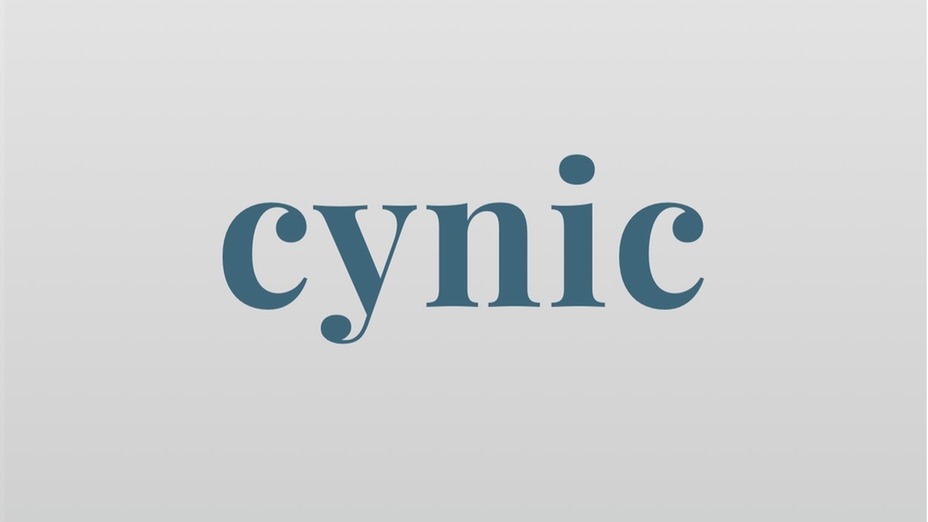1
: a faultfinding captious critic
especially
: one who believes that human conduct is motivated wholly by self-interest
Of course, there will always be cynics when companies make good-faith apologies and seek to follow through. — Andrew Ross Sorkin
Andrew Ross Sorkin
 Andrew Ross Sorkin
Andrew Ross Sorkin 2
capitalized
: an adherent of an ancient Greek school of philosophers who held the view that virtue is the only good and that its essence lies in self-control and independence
cynic
adjective
Love words? Need even more definitions?
Merriam-Webster unabridged














Share